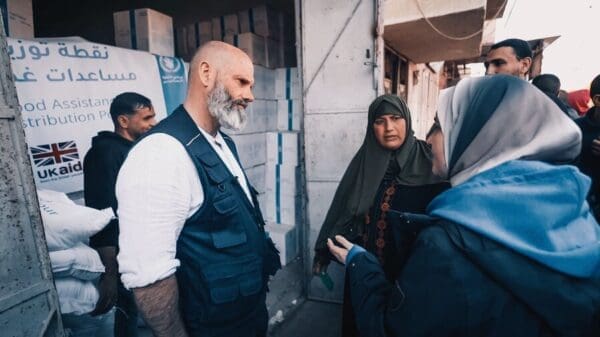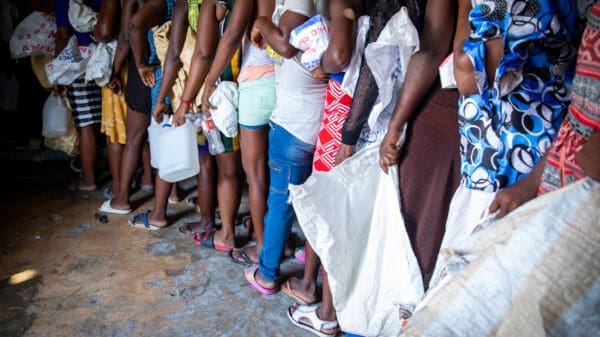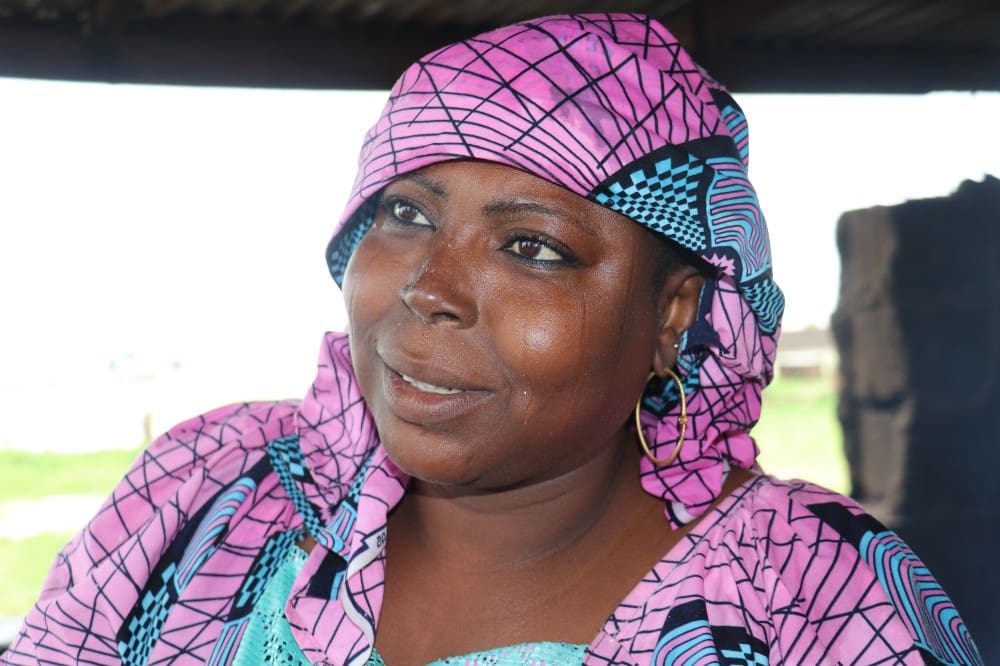
After Being Held Captive for 11 Months, Amina Ran a Soup Kitchen for 100 People.
It was raining and a large crowd of mostly women and children huddled together outside a low-roof building in the town of Dikwa, Nigeria. The aroma emanating from the open-sided building seemed to have cast a spell on the crowd. Inside, Amina Abacha was busy issuing instructions to her helpers. Thick smoke clouded her simple kitchen where a team of volunteers labored over giant clay pots filled with sorghum porridge and stewed beans.
For many of those waiting, this was their first cooked meal in days. Most made long journeys by foot to get there, having been driven from their villages by the ongoing violent conflict in northeast Nigeria between government forces and non-state armed groups.
Three years ago, Amina made the same journey to Dikwa. After her experience, she made the decision to help others in the same situation.
“I have walked in the same shoes as these people. I arrived here with nothing,” Amina said. “My village was attacked and I managed to escape with my daughter and sons. We came to Dikwa but found the fighters were here too. We were held for 11 months. They took away my eldest son and brainwashed him. I haven’t seen him since.”
Amina and her family remained in Dikwa when government troops took control of the town in 2015. Since then, thousands of people uprooted by the conflict have sought sanctuary there.
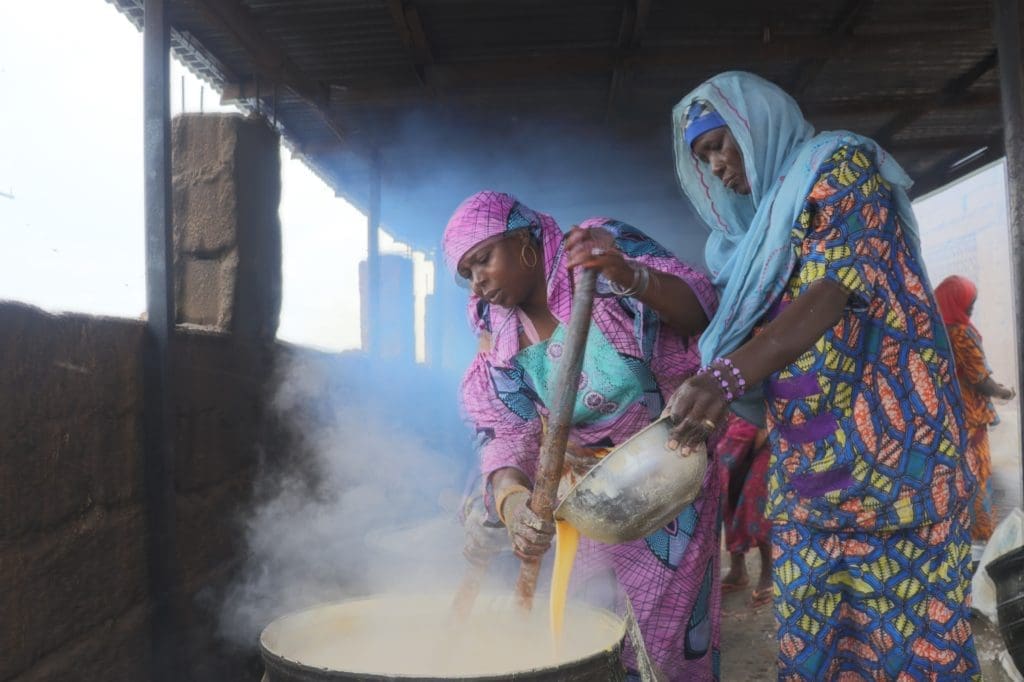
Fondly known as ‘The Chairlady,’ Amina played a hands-on role preparing meals every day with her team of volunteers.
Amina set up the kitchen so that people who arrive exhausted at the camp could immediately receive a meal before undergoing the sometimes lengthy registration process. Together with her team of nine helpers, she could serve up three wholesome meals a day.
Over 100 people are served lunch. The number varied depending on how many new arrivals turned up in the camp. They could continue to eat at the kitchen until they get settled in the camp and start receiving their monthly food ration from the United Nations World Food Programme (WFP).
The kitchen functioned thanks to a regular supply of grains and beans provided by the U.N. World Food Programme through its partner in Dikwa, Christian Aid. Pregnant and breastfeeding women and young children also received specialized nutritious foods from the U.N. World Food Programme.
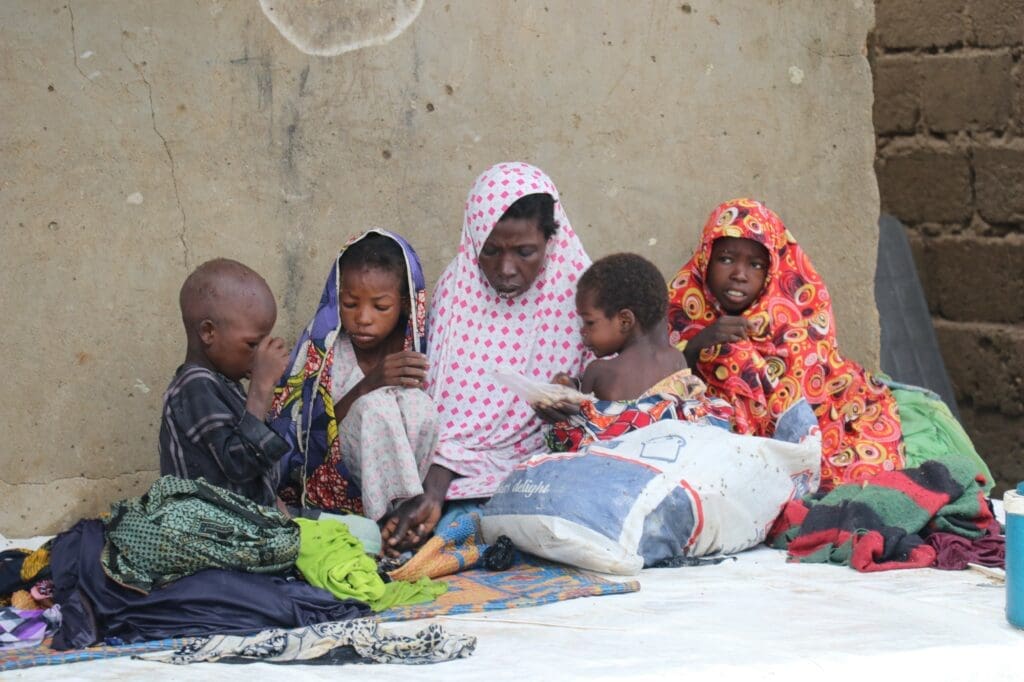
Amina’s kitchen served as a lifeline for many families arriving in Dikwa from remote locations.
In July 2018, Dikwa received over 2,500 new arrivals from remote areas close to the Cameroonian border. These were among more than 11,400 newly displaced people assisted over the course of the month by the U.N. World Food Programme and partners in eight locations across Borno.
Today, the violence is exacerbating an already untenable situation. During the lean season, food reserves have run low in some rural areas. Levels of malnutrition are high among children arriving from communities that are cut off from humanitarian support because of the security situation.
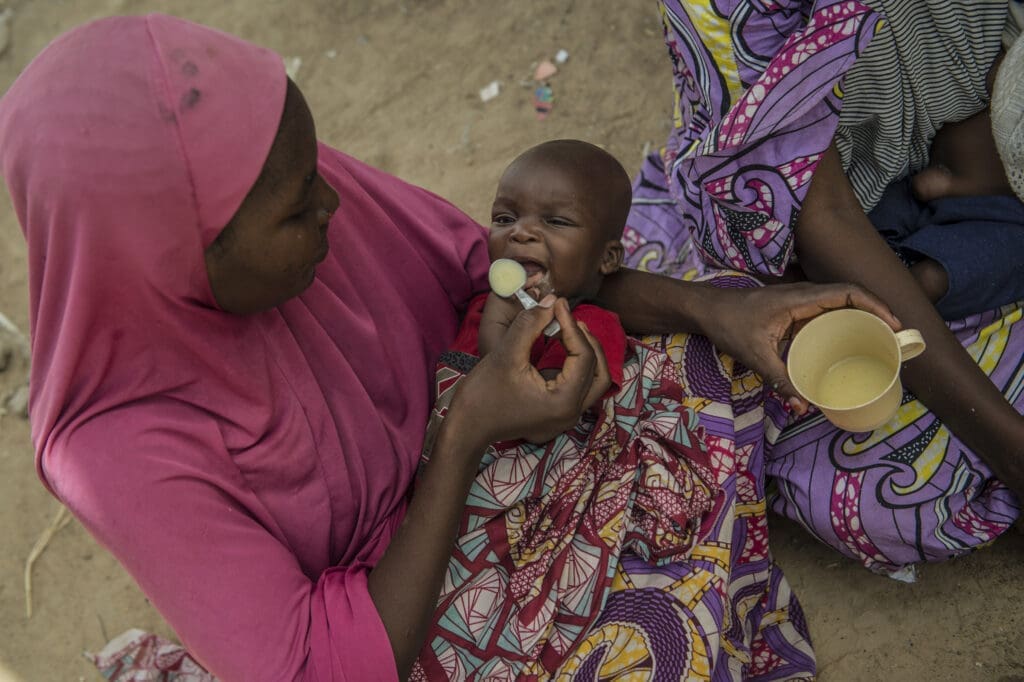
Aminat fed her baby WFP SuperCereal. “I have experienced great misery,” she said. “I lost my husband. I cannot lose my children to poverty and hunger too.”
“Amina gives a sense of hope to new arrivals,” said Grace Mazani, a nutrition officer working with CARE International, another of the U.N. World Food Programme’s partners in Dikwa. “She is totally selfless and doesn’t expect anything in return for the work that she does.”
The dedication and leadership over feeding the new arrivals won Amina admiration from men, women and children in the camp.
“I can’t quit this job. People arrive here every day. They all have terrible stories,” said Amina. “Some have lost loved ones along the way and some have even lost their memories because of the trauma they have suffered. They all have stories of hunger and need food on their arrival.”
Amina expressed the hope of being reunited with her son one day. Some of the new arrivals reassured her that he is still alive.
“People have seen him but say he is afraid of coming here. I am still living in pain knowing that my son is still out there with the fighters,” she said.
Amina will run the kitchen until he returns.
This story originally appeared in WFP’s Stories in 2019.
Conflict is the #1 cause of hunger in the world, and WFP is doing everything in its power to deliver food to people like Amina. Join our fight today.
